Hi I've deployed single MySQL db instance in Azure via the YAML file in Azure Kubernetes service. I can get into the container via CLI when I'm inside my cluster. I would like to connect with db instance via external client like MySQL Workbench or Sqlelectron or others, outside the cluster. As I found out it's possible via correctly exposing DB instance by Service configuration.
My deployment of single instance MySQL DB instance is:
apiVersion: v1
kind: Service
metadata:
name: mysql-db-testing-service
namespace: testing
spec:
type: ClusterIP
ports:
- port: 3306
#targetPort: 3306
selector:
app: mysql-db-testing
---
apiVersion: apps/v1
kind: Deployment
metadata:
name: mysql-db-testing
namespace: testing
spec:
selector:
matchLabels:
app: mysql-db-testing
replicas: 1
strategy:
type: Recreate
template:
metadata:
labels:
app: mysql-db-testing
spec:
containers:
- name: mysql-db-container-testing
image: mysql:8.0.31
env:
- name: MYSQL_ROOT_PASSWORD
value: test12345
ports:
- containerPort: 3306
name: mysql-port
volumeMounts:
- mountPath: "/var/lib/mysql"
name: mysql-persistent-storage
volumes:
- name: mysql-persistent-storage
persistentVolumeClaim:
claimName: azure-managed-disk-pvc-mysql-testing
nodeSelector:
env: preprod
As I've mentioned I can get to the container via CLI:
Console output regarding the working pod with db looks like:

Console output regarding the service:
Is there something missing in my deployment YAML file or maybe there are missing some fields? How can I expose db to the outside world? I would be grateful for help.

